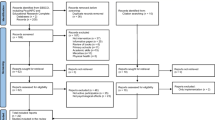Abstract
While past literature has explored school engagement in older students, there is less research for younger children specifically, and very little which engages children themselves in the research process. This paper provides insight into school engagement for academically at-risk students in the second year of school through a participatory research project. Specifically, the paper reports on a project which examined three groups of students within the Catholic Education system in Australia, namely, those not considered at-risk academically, those considered at-risk but receiving one-on-one support, and those considered to be at-risk but not receiving support. Students participated in focus groups and a photo elicitation project, with questions adapted from The School Engagement Questionnaire forming the basis of data collection. In relation to behavioural engagement, the thematic analysis demonstrated that students in each group valued social interaction, while at-risk students spoke about experiences of punishment at school and students in the group receiving support spoke about rewards. In relation to cognitive engagement, themes of boredom were evident across all groups, while students in the non at-risk group were more likely to speak about the value of learning. At-risk students also displayed some anxiety in relation to school which was not displayed by students who were receiving support. Free time, favourite lessons and technology were all identified as prominent themes in all groups in relation to affective engagement. While the study has some limitations due to restricted timeframe and sample size, it provides an insight into the utility of considering school engagement in developing an understanding of the school experience of at-risk students in primary school. Future studies in this area should examine broader, more representative samples and also consider students with multiple risk factors.
Similar content being viewed by others
References
Appleton, J., Christenson, S., Kim, D., & Reschly, A. (2006). Measuring cognitive and psychological engagement: Validation of the student engagement instrument. Journal of School Psychology, 44, 427–445.
Archambault, I., Janosz, M., Morizot, J., & Pagani, L. (2009). Adolescent behavioural, affective, and cognitive engagement in school: Relationship to dropout. Journal of School Health, 79, 408–415.
Balfanz, R., Herzog, L., & Mac Iver, D. (2007). Preventing student disengagement and keeping students on the graduation path in urban middle-grades schools: Early identification and effective interventions. Educational Psychologist, 42, 223–235.
Boon, H. (2008). Risk of resilience? What makes a difference. Australian Educational Researcher, 35, 81–102.
Booth, T., & Booth, W. (2003). In the frame: Photovoice and mothers with learning difficulties. Disability & Society, 18, 431–442.
Braun, V., & Clarke, V. (2006). Using thematic analysis in psychology. Qualitative Research in Psychology, 3, 77–101.
Crivello, G., Camfield, L., & Woodhead, M. (2009). How can children tell us about their wellbeing? Exploring the potential of participatory research approaches within young lives. Social Indicators of Resilience, 90, 51–72.
Danby, S., & Farrell, A. (2004). Accounting for young children’s competence in educational research: New perspectives on research ethics. Australian Educational Researcher, 31(2), 35–49.
DeAngelis, T. (2012). Helping at-risk students succeed. Monitor on Psychology, 43, 2. Retrieved February, from www.apa.org/monitor.
Downer, J., Rimm-Kaufman, S., & Pianta, R. (2007). How do classroom conditions and children’s risk for school problems contribute to children’s engagement in learning? School Psychology Review, 36, 413–432.
Fereday, J., & Muir-Cochrane, E. (2006). Demonstrating rigor using thematic analysis: A hybrid approach of inductive and deductive coding and theme development. International Journal of Qualitative Methods, 5, 80–92.
Finn, J. (1989). Withdrawing from school. Review of Educational Research, 59, 117–142.
Finn, J., & Zimmer, K. (2012). Student engagement: What is it? Why does it matter? In S. Christenson, A. Reschly, & C. Wylie (Eds.), Handbook of research on student engagement (pp. 97–126). New York: Springer.
Fredricks, J., Blumenfeld, P., & Paris, A. (2004). School engagement: Potential of the concept, state of evidence. Review of Educational Research, 74, 59–109.
Fredricks, J., McCloskey, W., Meli, J., Mordica, J., Montrosse, B., & Mooney, K. (2011). Measuring student engagement in upper elementary through high school: A description of 21 instruments (issues and answers report, REL 2011-no. 098). Washington, DC: US. Department of Education, Institute of Education Sciences, National Center for Education Evaluation and Regional Assistance, Regional Educational Laboratory Southeast.
Furlong, M., & Christenson, S. (2008). Engaging students at school and with learning: A relevant construct for all students. Psychology in the Schools, 45, 365–368.
Gutnick, A., Robb, M., Takeuchi, L., & Kotler, J. (2010). Always connected: the new digital media habits of young children. New York: The Joan Ganz Cooney Centre at Sesame Workshop.
Iversen, S., Tunmer, W., & Chapman, J. (2005). The effects of varying group size on the Reading Recovery approach to preventative early intervention. Journal of Learning Disabilities, 38, 456–472.
Klem, A., & Connel, J. (2004). Relationships matter: Linking teacher support to student engagement and achievement. Journal of School Health, 74, 262–273.
Lyons, C. (1989). Reading Recovery: A preventative for mislabelling young ‘at-risk’ learners. Urban Education, 24, 125–139.
Marks, H. (2000). Student engagement in instructional activity: Patterns in the elementary, middle, and high school years. American Educational Research Journal, 37, 153–184.
National Centre for School Engagement Colorado (2006). Quantifying School Engagement: Research Report. Retrieved June 6, 2012 from http://www.schoolengagement.org/TruancypreventionRegistry/Admin/Resources/Resources/QuantifyingSchoolEngagementResearchReport.pdf.
Skinner, E., Zimmer-Gembeck, M., & Connell, J. (1998). Individual differences and the development of perceived control. Monographs of the Society for Research in Child Development, 63, 1–220.
Thomson, F. (2007). Are methodologies for children keeping them in their place? Children’s Geographies, 5, 207–218.
Valerio, K. (2012). Intrinsic motivation in the classroom. Journal of Student Engagement: Education Matters, 2, 30–35.
Author information
Authors and Affiliations
Corresponding author
Rights and permissions
About this article
Cite this article
O’Toole, N., Due, C. School engagement for academically at-risk students: a participatory research project. Aust. Educ. Res. 42, 1–17 (2015). https://doi.org/10.1007/s13384-014-0145-0
Received:
Accepted:
Published:
Issue Date:
DOI: https://doi.org/10.1007/s13384-014-0145-0




